“To the Core”, a Columbia GSAPP’s Urban Design project, seeks to leverage the prolific industry of apple production and processing in the state of New York, in an attempt to catalyze investment and broader economic growth in the Hudson Valley region. The Valley is home to two major apple production clusters, yet none of the processing facilities for the entire state. One cannot help but notice the missed opportunity that lies here: while half of the annual apple crop is processed into added value products, all the processing seems to be happening exclusively in the Finger Lakes region.
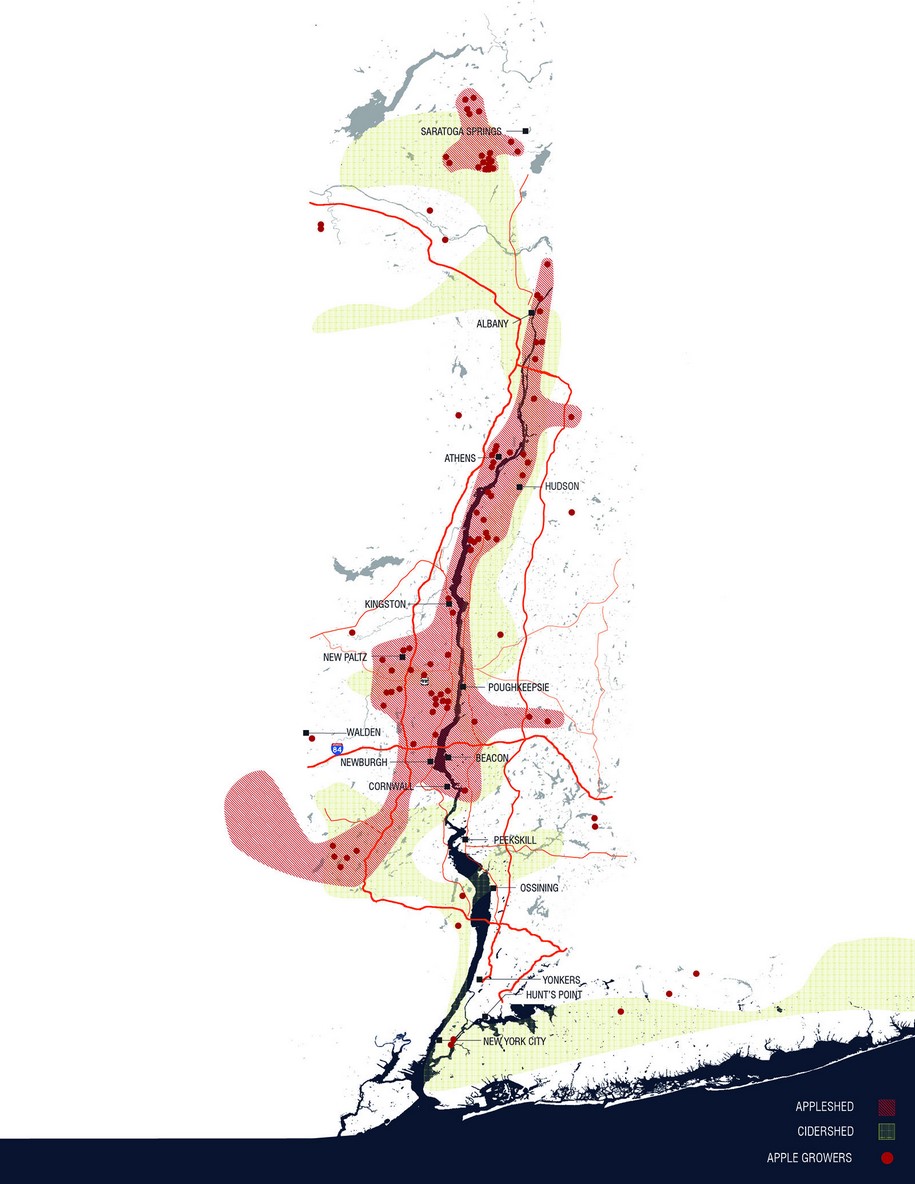
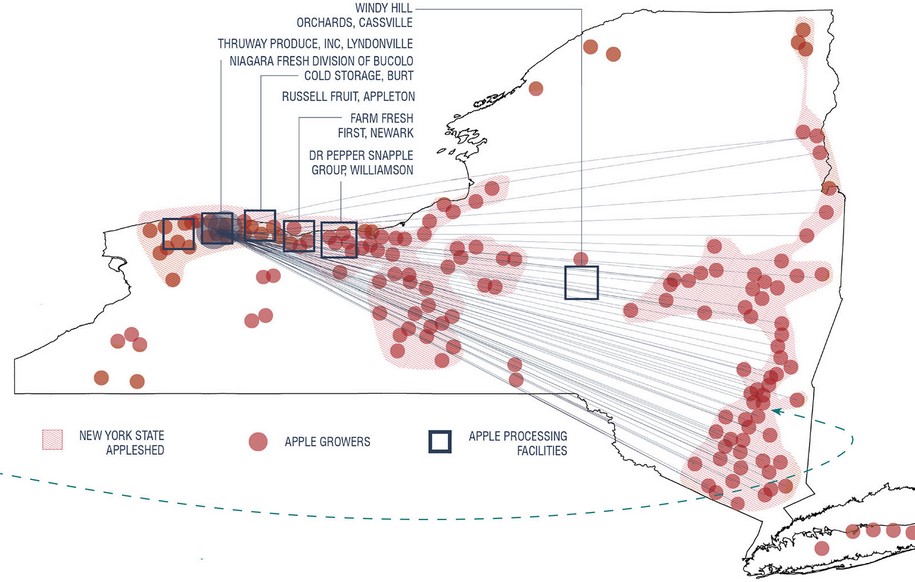
Building on the growing regional food and beverage industry, we propose the creation and branding of a local center in the Hudson Valley. Newburgh is ideal for such an endeavor, due to its convenient location at the intersection of Interstates 84 and 87, as well as its affordable industrial and commercial real estate and a labor force awaiting employment opportunities.

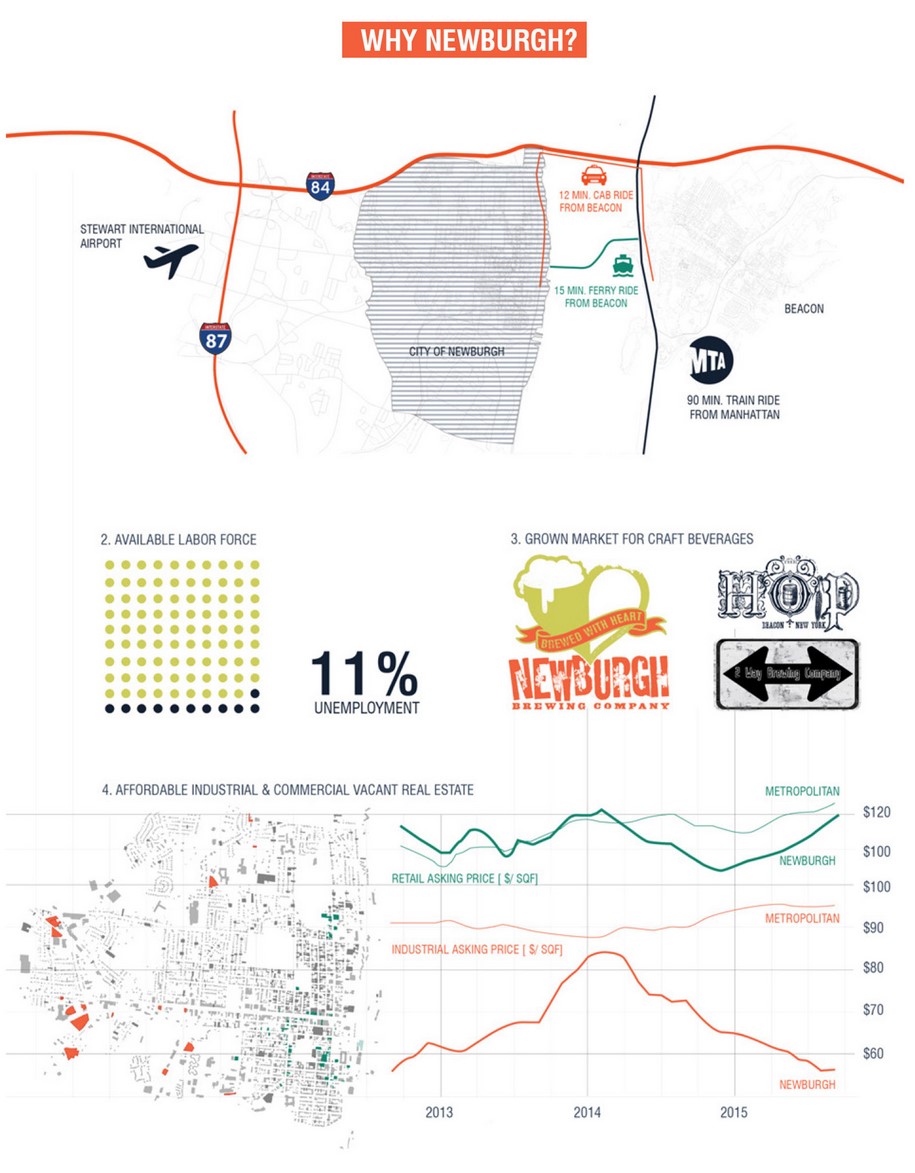
Driven by a public-private partnership, the project proposes a phased approach to add a new element to Newburgh’s identity. The first step is the establishment of an apple processing, cold storage and distribution facility, in addition to the establishment of the Newburgh Cider Company, an artisanal cider house to encourage entrepreneurship. The cidery would occupy a vacant industrial building adjacent to the already successful Newburgh Brewing Company and the large undeveloped hillside that was eradicated during the urban renewal era, would be transformed into a demonstration orchard.
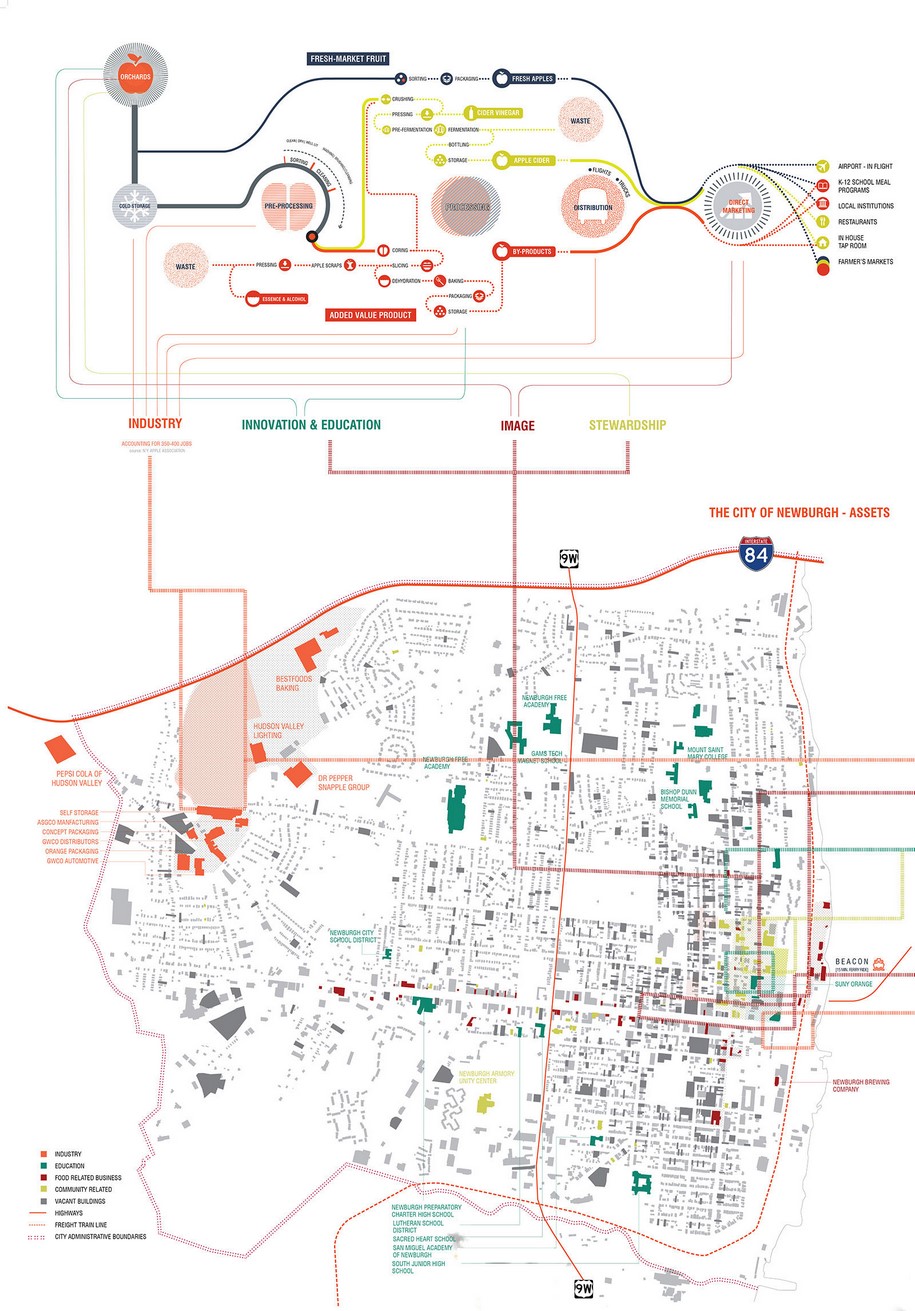
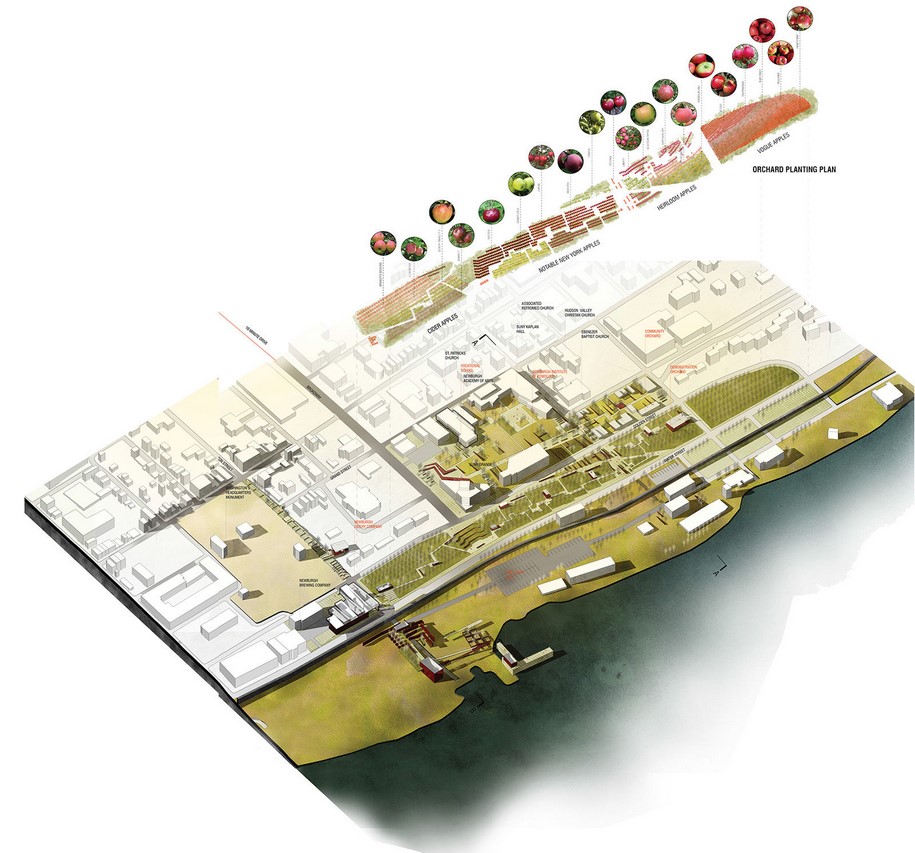
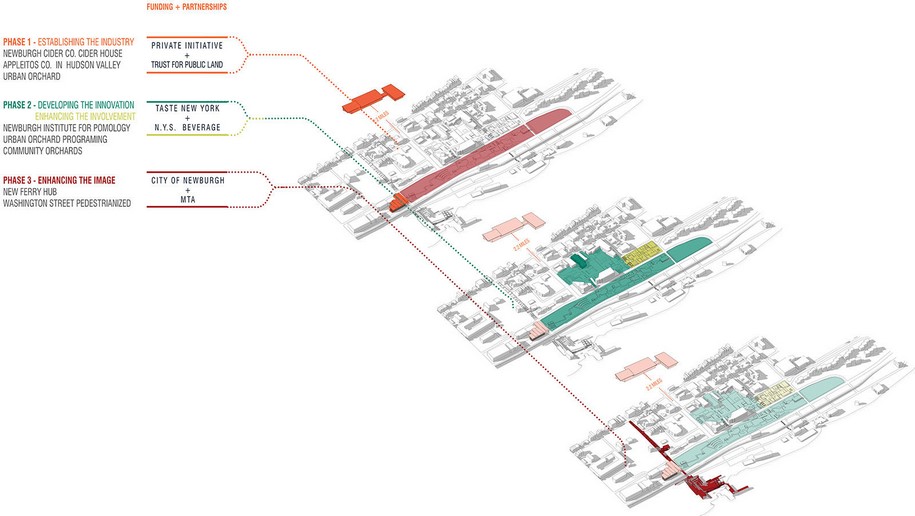
Having gained a certain momentum, the next steps will be the creation of the Newburgh Institute of Pomology, an agricultural extension to the existing SUNY-Orange Campus, that will provide training and education in close collaboration with the “living laboratory” that is the orchard. At the same time, community orchards provide opportunities for stewardship among the residents of the city.
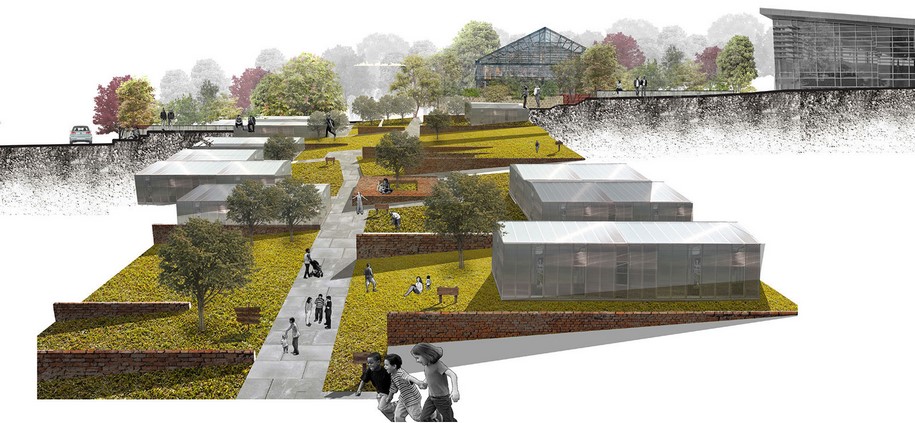
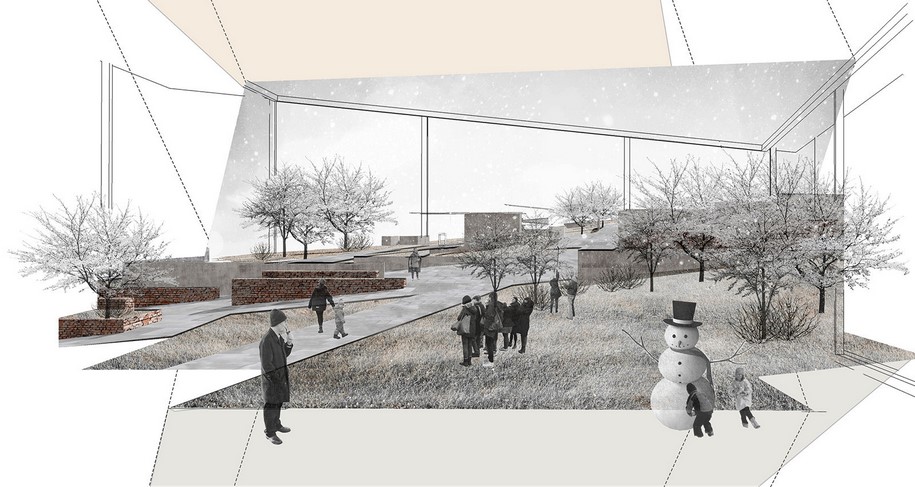
As a new image and narrative is built, along with the economic growth, a new ferry port is proposed, linked to a pedestrianized Washington Street that facilitates the movement of visitors and tourists to the cider house, historic site of the Washington Headquarters and the successful small businesses on Liberty Street.
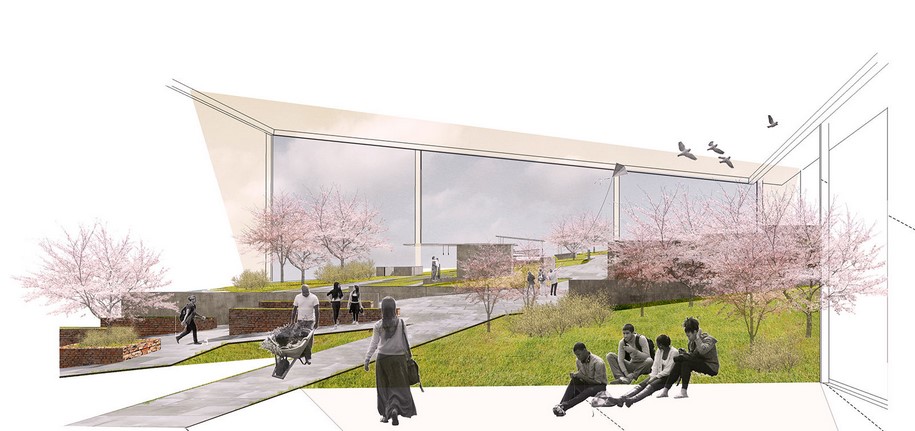
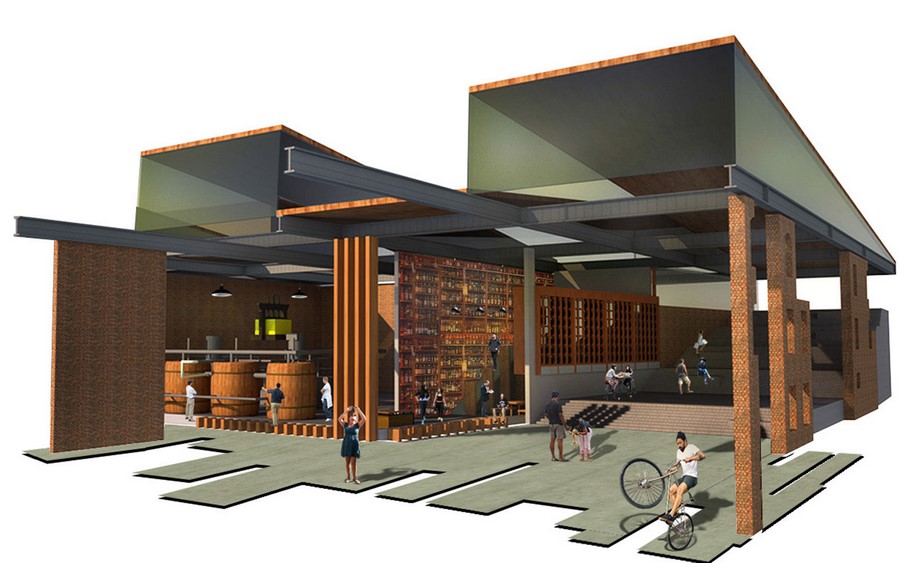
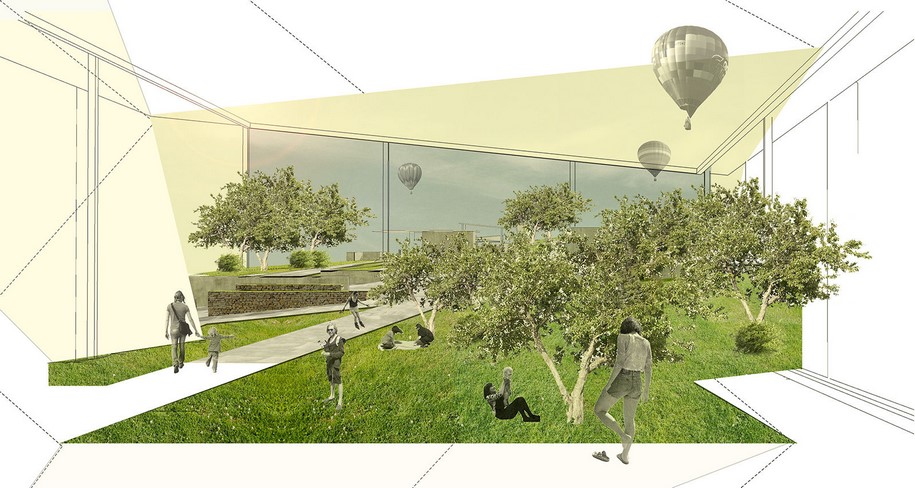
You can watch a short video about the project here: https://vimeo.com/191487815
Facts & Credits:
This project was carried out in the context of the “Divergent Narratives” studio at Columbia GSAPP’s Urban Design Program, Fall Semester 2015.
Students: Marshall Allen, Eleni Gklinou, Nishant Mehta, Chenxing Li
Faculty: Lee Altman, Justin G. Moore (coordinators), Pippa Brashear, Christopher Kroner, Liz McEnaney, Sandro Marpillero, David Smiley, Jin Taira, Nans Voron.
Short Bios:
Marshall Allen is a Landscape Architect/ Urban Designer (M.Sc.AUD, Columbia GSAPP; BLA SUNY-ESF). His work was recognized for Most Outstanding Graduate Student in Urban Design Studio while studying at Columbia. He works at Confluence in Kansas City.
Eleni Gklinou is an Architect and Urban Designer (M.Sc.AUD, Columbia GSAPP; MArch A.U.Th). She is the recipient of the Honor Award for Excellence in Design for her work at Columbia, where she has also taught as part of the Fall Urban Design studio 2016.
Nishant Mehta is an Architect and Urban Designer (M.Sc.AUD, Columbia GSAPP; B.Arch KRVIA). He is the recipient of the Honor Award for Excellence in Design for his work at Columbia. He currently works as an Urban Designer with HCP Architects, Ahmedabad, India.
Chenxing Li is an Architect and Urban Designer (M.Sc.AUD, Columbia GSAPP; MUP Tsinghua Univ). She currently works as a real estate developer, trying to bring the concept of urban planning & design to the business of development.
READ ALSO: "Baltic Way Memorial" International Architecture Competition by E.Katsarou & E.Sgouridou